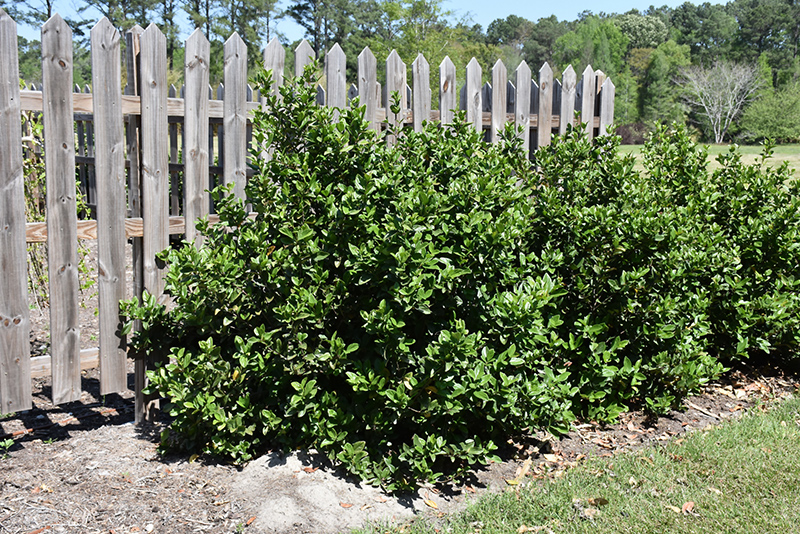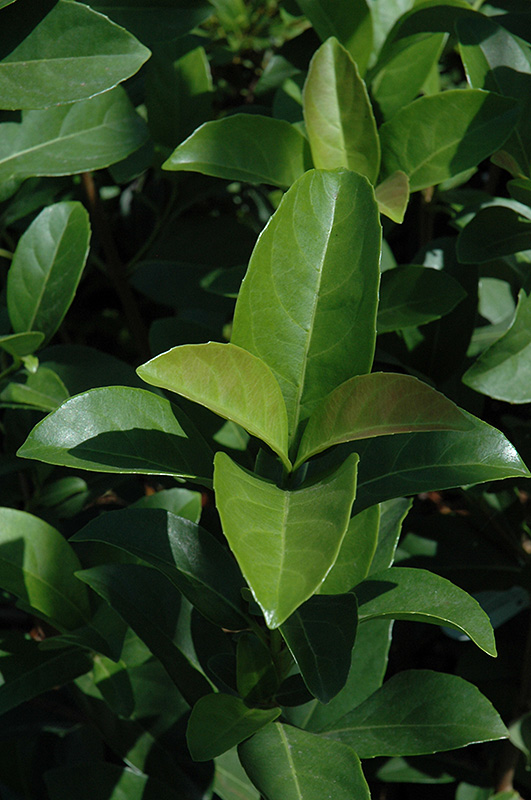>> Home
Height: 12 feet
Spread: 12 feet
Sunlight:
![]()
![]()
Hardiness Zone: 7
Other Names: Sandankwa Viburnum
Description:
Dense and shiny, deep green serrated leaves that emerge chartreuse are beautiful; showy clusters of dainty white and pink flowers in late winter; red berries in summer; a great hedging or screening plant that requires little maintenance
Ornamental Features
Sandanqua Viburnum features showy fragrant white flat-top flowers with shell pink eyes at the ends of the branches in late winter. It has attractive dark green evergreen foliage which emerges chartreuse in spring. The glossy oval leaves are highly ornamental and remain dark green throughout the winter. The red fruits are held in abundance in spectacular clusters in mid summer.
Landscape Attributes
Sandanqua Viburnum is a dense multi-stemmed evergreen shrub with an upright spreading habit of growth. Its relatively coarse texture can be used to stand it apart from other landscape plants with finer foliage.
This is a relatively low maintenance shrub, and should only be pruned after flowering to avoid removing any of the current season's flowers. It is a good choice for attracting birds to your yard, but is not particularly attractive to deer who tend to leave it alone in favor of tastier treats. It has no significant negative characteristics.
Sandanqua Viburnum is recommended for the following landscape applications;
- Mass Planting
- Hedges/Screening
- General Garden Use
- Naturalizing And Woodland Gardens
Planting & Growing
Sandanqua Viburnum will grow to be about 12 feet tall at maturity, with a spread of 12 feet. It tends to fill out right to the ground and therefore doesn't necessarily require facer plants in front, and is suitable for planting under power lines. It grows at a fast rate, and under ideal conditions can be expected to live for 40 years or more.
This shrub does best in partial shade to full shade. Keep it well away from hot, dry locations that receive direct afternoon sun or which get reflected sunlight, such as against the south side of a white wall. It does best in average to evenly moist conditions, but will not tolerate standing water. It may require supplemental watering during periods of drought or extended heat. It is not particular as to soil pH, but grows best in rich soils. It is highly tolerant of urban pollution and will even thrive in inner city environments. This species is not originally from North America.

